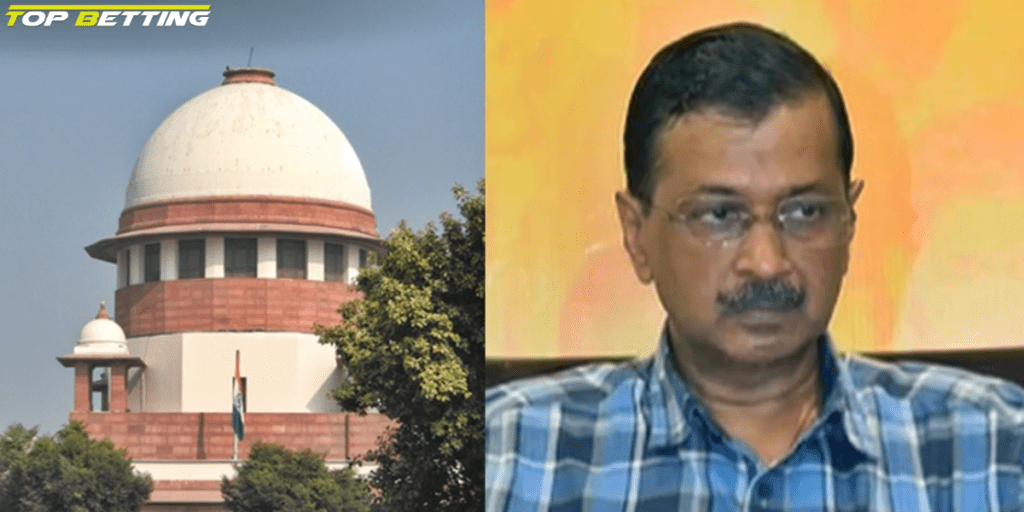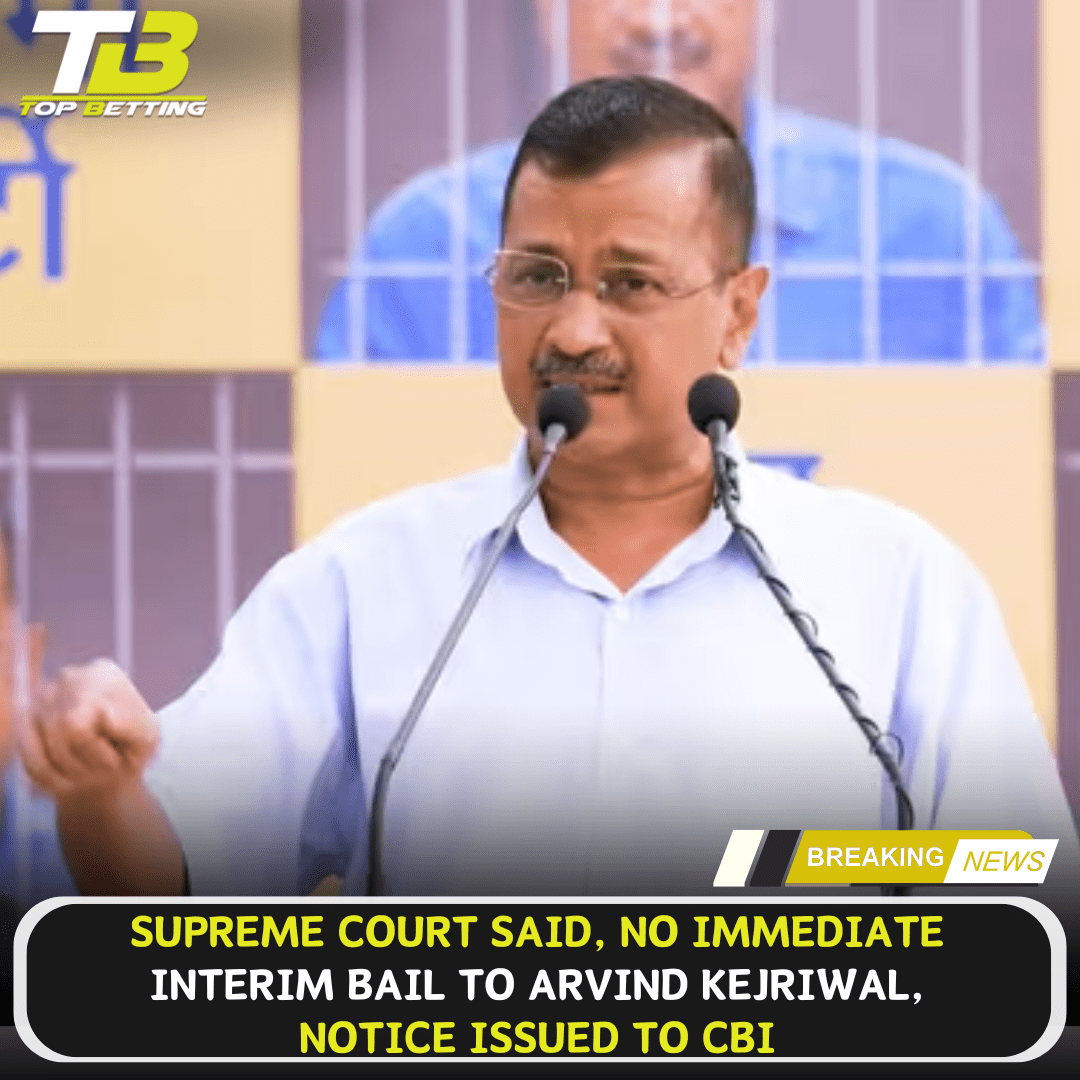
No Immediate Bail for Kejriwal SC Issues Notice
Arvind Kejriwal has been in custody since March 21 following his arrest by the Enforcement Directorate. The Supreme Court on Wednesday said it cannot grant immediate interim bail to Delhi Chief Minister Arvind Kejriwal, who is seeking release from jail in a corruption case registered by the Central Bureau of Investigation (CBI) in the excise policy matter.
A bench of Justices Surya Kant and Ujjal Bhuyan also issued notice to the CBI on Kejriwal’s plea challenging the Delhi High Court’s August 5 verdict confirming his arrest and denying him bail. Follow live updates of Arvind Kejriwal’s bail hearing. We are not granting any interim bail. We will issue notice,” the bench told senior advocate Abhishek Singhvi, who appeared for Kejriwal, according to PTI.
The Supreme Court has denied immediate interim bail to Delhi Chief Minister Arvind Kejriwal, who is being investigated by the Central Bureau of Investigation (CBI). Kejriwal is facing charges related to alleged irregularities in Delhi’s now-scrapped excise policy. The apex court issued a notice to the CBI and requested a response within two weeks.
This ruling came as a setback to Kejriwal and his legal team, who argued that the arrest was politically motivated and lacked substantial evidence. The court’s decision means that Kejriwal will remain in custody pending further proceedings on the matter.
The matter will be heard next on August 23
In his plea filed two days after the apex court granted bail to former Delhi deputy chief minister Manish Sisodia in related probes by the CBI and the Enforcement Directorate (ED), the Aam Aadmi Party (AAP) chief has challenged his arrest and subsequent remand orders, as well as pressing for bail.
Kejriwal, in the pleas filed on Monday, attacked the August 5 verdict of the Delhi High Court, which said his arrest was neither illegal nor without any reasonable ground, as the CBI had produced sufficient evidence for his detention and remand.
The plea relied heavily on the Sisodia verdict
His plea relied heavily on the Sisodia verdict, in which the apex court had said that the 17-month-long incarceration of the former deputy chief minister and his continued detention in a case in which there was no hope of an early conclusion of the trial was not, violating his fundamental right to liberty and speedy trial under Article 21 of the Constitution. The AAP chief’s plea argued that the grounds on which the court deemed it fit to release Sisodia on bail should be equally applicable to him.
What is the case against Arvind Kejriwal?
Kejriwal has been in custody since March 21 following his arrest by the ED, apart from being granted 21-day interim bail by the apex court in May for campaigning for the Lok Sabha elections. On July 12, the apex court had granted him interim bail in the ED case, acknowledging that he had spent more than 90 days in jail. Still, he continued to be in custody owing to his arrest by the CBI on June 26 in the same case.
The case against the CM stems from allegations of irregularities in Delhi’s now-expired excise policy of 2021-22, which the CBI began investigating in July 2022 following a recommendation by the Delhi Lieutenant Governor. Kejriwal was the third AAP leader to be arrested in this connection. Sisodia was in jail since February 2023, before being released on August 9, and Rajya Sabha MP Sanjay Singh was granted bail by the apex court in April after six months of detention.
Validity of Mr Kejriwal’s arrest by CBI affirmed
Earlier on August 5, the Delhi High Court had affirmed the legality of Mr Kejriwal’s arrest by the CBI. Refusing to quash his arrest, the high court had advised him to move the lower court for bail. The CBI had portrayed Mr Kejriwal as the “mastermind” of the alleged scam.
It said he is an influential person who can turn witnesses to his side and derail the case. The high court had said the circle of evidence against the Chief Minister was closed after the CBI collected relevant evidence after his arrest and it cannot be said that it was without any reasonable cause or illegal. It had said Mr Kejriwal is not an ordinary citizen but a distinguished recipient of the Magsaysay Award and the convener of the Aam Aadmi Party.
Conclusion

Delhi Chief Minister Arvind Kejriwal on Wednesday (August 14, 2024) argued in the Supreme Court that his arrest by the Central Bureau of Investigation (CBI) in the excise policy case, while he was “on the verge of release” on money laundering charges, was an “insurance arrest”, made to keep him behind bars.
This particular arrest can be called an insurance arrest. He (Kejriwal) was investigated and questioned in April 2023. The Enforcement Directorate (ED) arrested me in March 2024. I received several release orders in the ED case. I was on the verge of release when the CBI arrested me. The CBI could not find any cause of action between April 2023 and March 2024. Senior advocate AM Singhvi, appearing for Mr Kejriwal, argued.












